Teacher-Child Relationships
Responsive, sensitive relationships with teachers allow for preschoolers to learn and grow across all areas of development
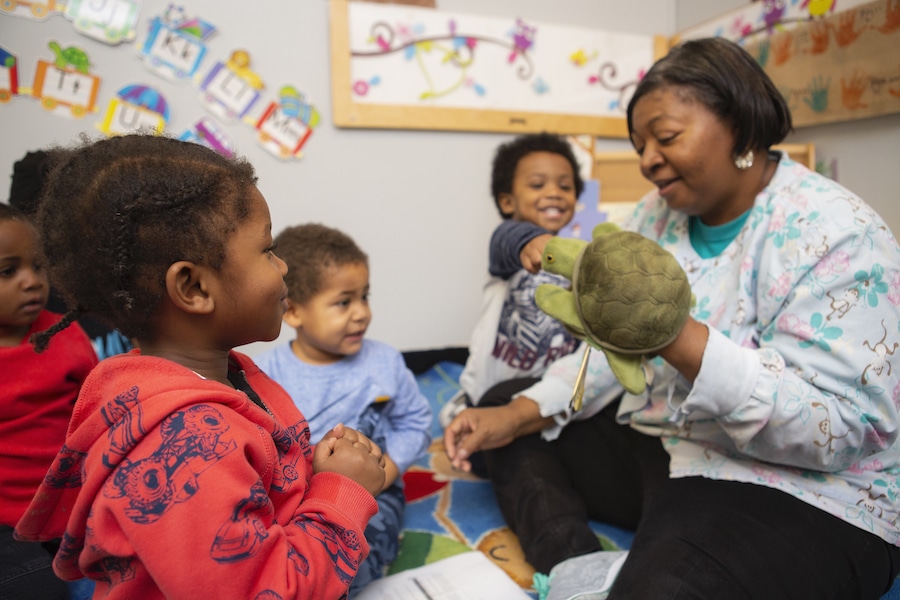
What You Need to Know
When children feel safe and connected, they are more able to explore and engage in the world around them. They take appropriate risks, try new things, and show increased self-reliance, persistence, compliance, and focus. When teachers anticipate issues and/or calmly address them when they occur, children are more able to quickly re-engage in an activity. Children use their relationships with teachers as a model when learning to communicate and relate to others. They seek out teachers to help them when they encounter problems or when they need comfort, support, or guidance.
What It Looks Like
A quick glance at ways you can make preschoolers feel welcomed and supported
Make a Personal Connection
Having a daily routine that focuses on relationship-building, like greeting children at the door, helps young children feel safe, supported, and connected.
Join in Children’s Play
Valuing what children have to say and showing genuine interest in their thoughts and ideas promote their independence.
Have Social Conversations
Engaging in social conversations at lunch, during center time, and on the playground can be a great way to get know children and stay connected.
FOUNDATIONAL STRATEGIES
Building Strong Relationships
Responsive, sensitive relationships between teachers and children allow children to learn and develop across all areas. Learn quick and simple strategies you can use to build relationships throughout the preschool day.
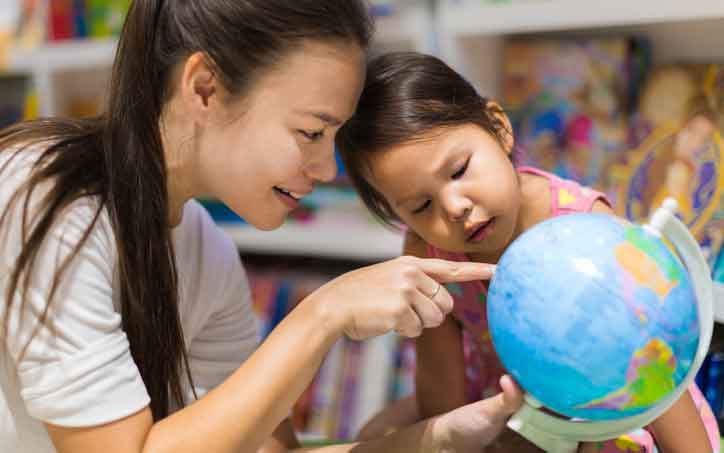
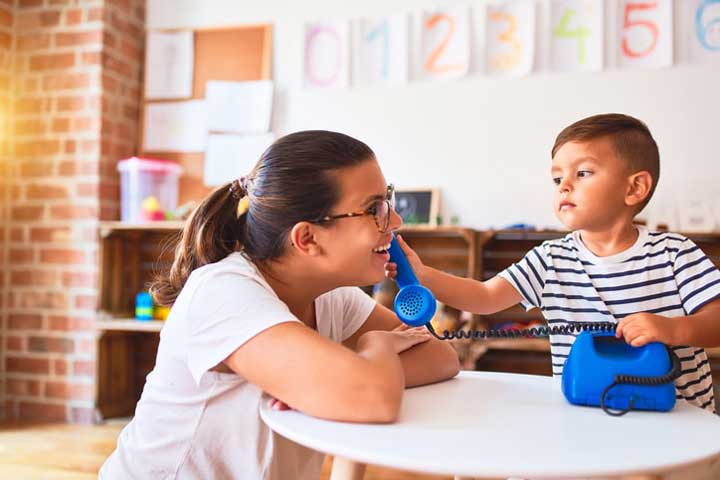
TARGETED STRATEGIES
Banking Time
Is there a child in your group that is struggling or hard to connect with? Banking time is an evidence-based, targeted approach you can use to foster close relationship with individual children.
TRAUMA-INFORMED CARE
At the Heart of Healing
University of Virginia’s Dr. Amanda Williford talks about cultivating connections after trauma.
FAMILY CONNECTION
Engaging Families Early On
Strong relationships with families lead to strong relationships with children. NAEYC shares key practices that engage families in their child’s early learning.
CONSIDERING EQUITY
Disrupting Racial Bias
Stanford University’s Jennifer Eberhardt discusses the power of racial bias and how to disrupt it in our relationships with children.
BUILDING CONNECTIONS WITH BOOKS
The Dot
The Dot by Peter H. Reynolds illustrates how a sensitive, responsive teacher supports a child when she needs it. Vashti, a reluctant young artist, finds inspiration because of her teacher’s actions. Books like this provide opportunities to talk about teachers and adults as helpers/partners when children have problems.
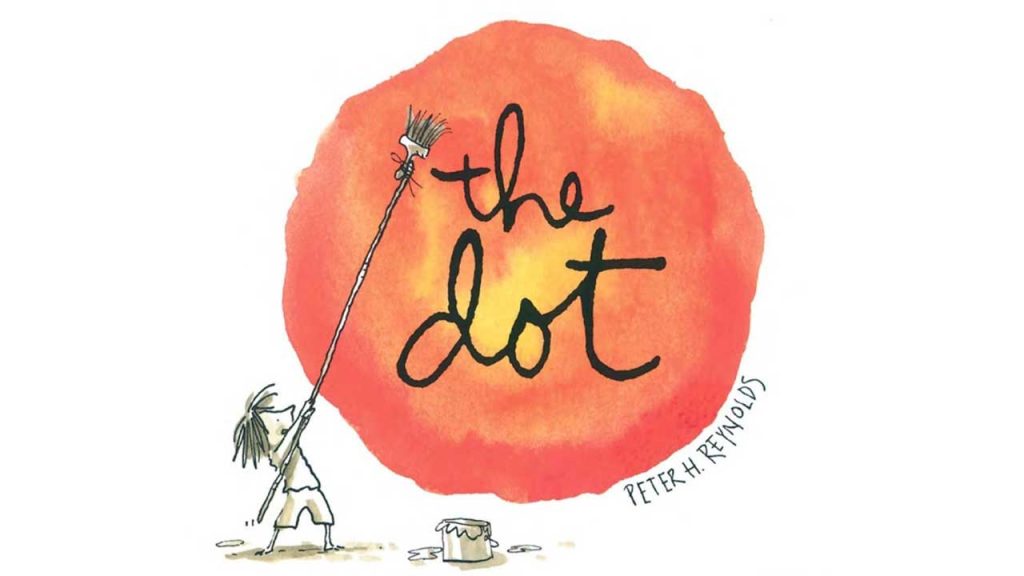
Activity Cards for Preschool Classrooms
Part of the STREAMin3 curriculum, activity cards provide simple and fun ways you can build relationships with children


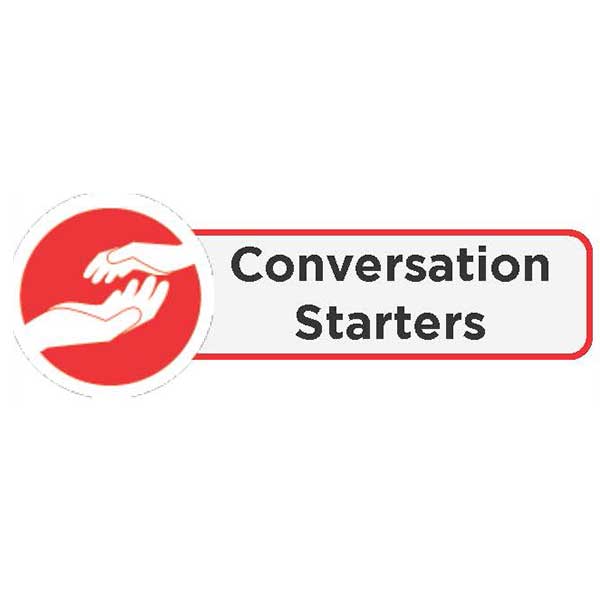
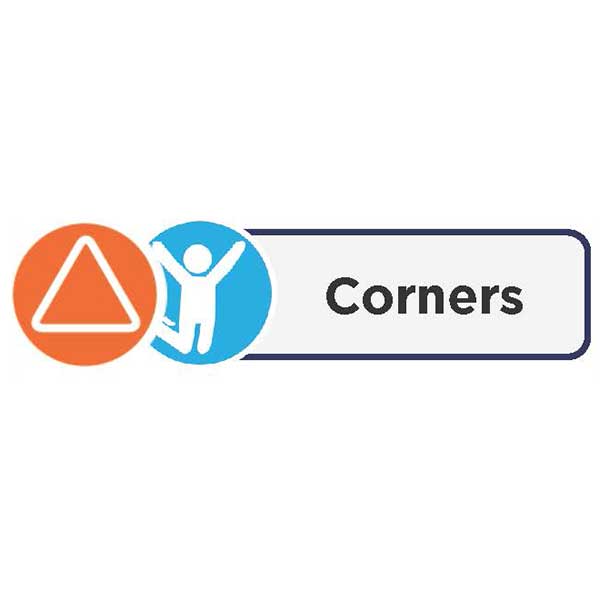
Get Our Resource Guide
Includes questions and activities to guide your use of the videos, book suggestions, and activity cards featured for each of our core social-emotional skills

